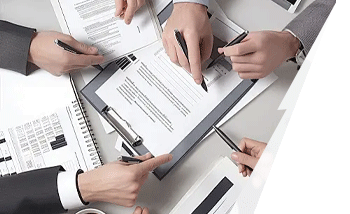What Every Traveler Should Know Before Visiting China
Ticket Booking
All plane and high-speed train tickets in China require real-name registration. You’ll need your passport to pick up tickets or scan it to enter the station. It’s generally safer to book 3–10 days in advance, but during holidays, book even earlier.
- Air Tickets: Prices fluctuate a lot, so check price comparison platforms regularly. Recommended booking platforms: Trip.com, Ctrip, Qunar.
- High-Speed Train Tickets: Use the official 12306 website (requires registration), Trip.com, Ctrip, or Qunar.
- Attraction Tickets: For scenic spots, apps like Ctrip or Meituan are convenient for online purchases.
Public Wi-Fi
Most hotels and public places like cafes and shopping malls provide free Wi-Fi, but you may need to verify via your phone number. In many cases, you’ll need to scan a QR code on WeChat to get the password. If you don’t have WeChat, it’s a good idea to install it before traveling.
Unlocked Phone & Local SIM
Make sure your phone is unlocked before arriving in China, so you can use a local SIM card. Otherwise, you might not be able to access Chinese mobile networks.
Prohibited Items
Do not bring prohibited items such as drugs, weapons, or pirated goods. China strictly bans drugs, including marijuana. All luggage will be inspected upon entry.
Smoking Rules
Smoking indoors in airports and major cities is generally prohibited. Some airports have designated smoking areas, but others, like Beijing and Shenzhen airports, do not provide any.
Travel Insurance
It’s highly recommended to purchase travel medical insurance that covers your stay in China.
Medications
If you take prescription medication regularly, bring enough for your trip and carry the prescription. Some medicines are restricted in China or require special permission. It’s also wise to pack common meds like pain relievers, anti-allergy medicine, or anti-diarrhea tablets, with English labels. If you plan to visit high-altitude regions like Tibet, consult your doctor first.
Packing & Clothing
China is huge, with diverse climates. Check the weather of your destinations and pack accordingly. Layered clothing is essential since temperatures can vary widely even within a single day. Don’t forget essentials: comfortable walking shoes, a hat, sunglasses, and a raincoat or umbrella.
Food & Hygiene
Most mid-to-high-end restaurants and chain restaurants in China follow strict food safety standards. In large cities, restaurants usually display their food licenses and undergo regular health inspections.
Street food and night markets can vary in hygiene. For sensitive stomachs, choose busy stalls where ingredients turnover quickly, and observe food handling practices (gloves, covered food, clean oil, etc.). Avoid raw or undercooked dishes, and wash your hands or use hand sanitizer after eating. Overall, Chinese dining is safe, and trying local food is encouraged.
Hotel Options & Standards
- Luxury Hotels (5-star, international brands like Hilton, Marriott, InterContinental): Full service, English-friendly.
- Business Hotels (3–4 star): Comfortable, mid-range pricing, some front desk staff speak English.
- Hostels / Backpacker Inns: Affordable, often have staff or guests who speak English.
- Airbnb / Local Guesthouses: Experience local life, requires prior communication for booking.
- Small Inns: Independent small hotels, cultural experience, basic service.
Appendix: Temperature, humidity, and clothing recommendations for major tourist cities in China from January to December
Reference website:https://chinawondersguide.com/2025/08/21/monthly-weather-guide-for-major-chinese-cities-temperature-humidity-clothing-tips-jan-dec/

